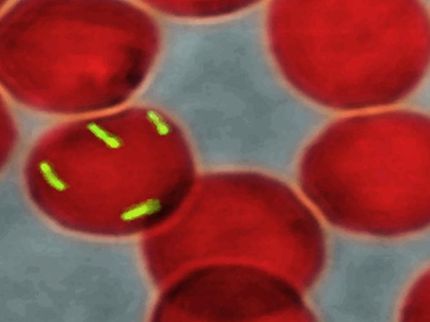Antibiotics may prevent stomach cancer
Advertisement
By identifying patients with Helicobacter pylori infection and treating them before they reach age 50, it is possible that many cases of stomach cancer could be prevented. This is the conclusion reached by gastroenterologist Tom Storskrubb in his Karolinska Institutet doctoral dissertation. The dissertation is based on the largest-ever population-based gastroscopic study, which included 1000 randomly selected healthy people in Kalix and Haparanda, Sweden.
Tom Storskrubb, of the Center for Family and Community Medicine (CeFAM) in Stockholm, studied the prevalence of the bacterium Helicobacter pylori in the stomachs of study participants. Helicobacter pylori is a main cause of peptic ulcer disease and the main risk factor for stomach cancer. Storskrubb also looked at the prevalence of scar formation and cell changes in the mucous lining of participants' stomachs. The investigation used gastroscopy to examine the stomach from the inside and simultaneously collect tissue samples.
An active Helicobacter pylori infection was found in approximately a third of the 1000 people examined. A further 10 percent of participants showed signs of previous infection. Using the tissue samples, Storskrubb also looked for signs of risk factors for cancer of the stomach and found them in approximately 15 percent of those with active or past Helicobacter pylori infection.
Scar formation and cellular changes caused by Helicobacter pylori are the single most common cause of stomach cancer and may explain up to 90 percent of all cases. Storskrubb's examination of the mucous lining of participants' stomachs revealed no cellular changes in those under the age of 50 years, even if they were infected with Helicobacter pylori. It thus seems plausible that eliminating the bacteria in time in patients who seek care for dyspepsia could prevent them from developing stomach cancer later in life.
In another study, Storskrubb showed that a simple laboratory test works as well as gastroscopy to identify patients who have or had a Helicobacter pylori infection. Together, these findings challenge the prevailing strategy used in Sweden during recent years (known as scope them all) in which gastroscopy has been the most common diagnostic method used when a stomach ulcer is suspected. Storscrubb's challenge to his fellow physicians is clear:
The laboratory tests that were used in the study consist of a panel of tests that together can show antibodies to Helicobacter pylori (indicating active or previous infection), as well as the degree, if any, of scar formation in the mucous lining of the stomach. Facts:
Dissertation: Tom Storskrubb; "Helicobacter pylori infection and associated stomach pathology in the adult general population"; Center for Family and Community Medicine, Karolinska Institutet and Stockholm County Council.
Other news from the department science
Most read news
More news from our other portals
See the theme worlds for related content
Topic world Antibodies
Antibodies are specialized molecules of our immune system that can specifically recognize and neutralize pathogens or foreign substances. Antibody research in biotech and pharma has recognized this natural defense potential and is working intensively to make it therapeutically useful. From monoclonal antibodies used against cancer or autoimmune diseases to antibody-drug conjugates that specifically transport drugs to disease cells - the possibilities are enormous

Topic world Antibodies
Antibodies are specialized molecules of our immune system that can specifically recognize and neutralize pathogens or foreign substances. Antibody research in biotech and pharma has recognized this natural defense potential and is working intensively to make it therapeutically useful. From monoclonal antibodies used against cancer or autoimmune diseases to antibody-drug conjugates that specifically transport drugs to disease cells - the possibilities are enormous























































